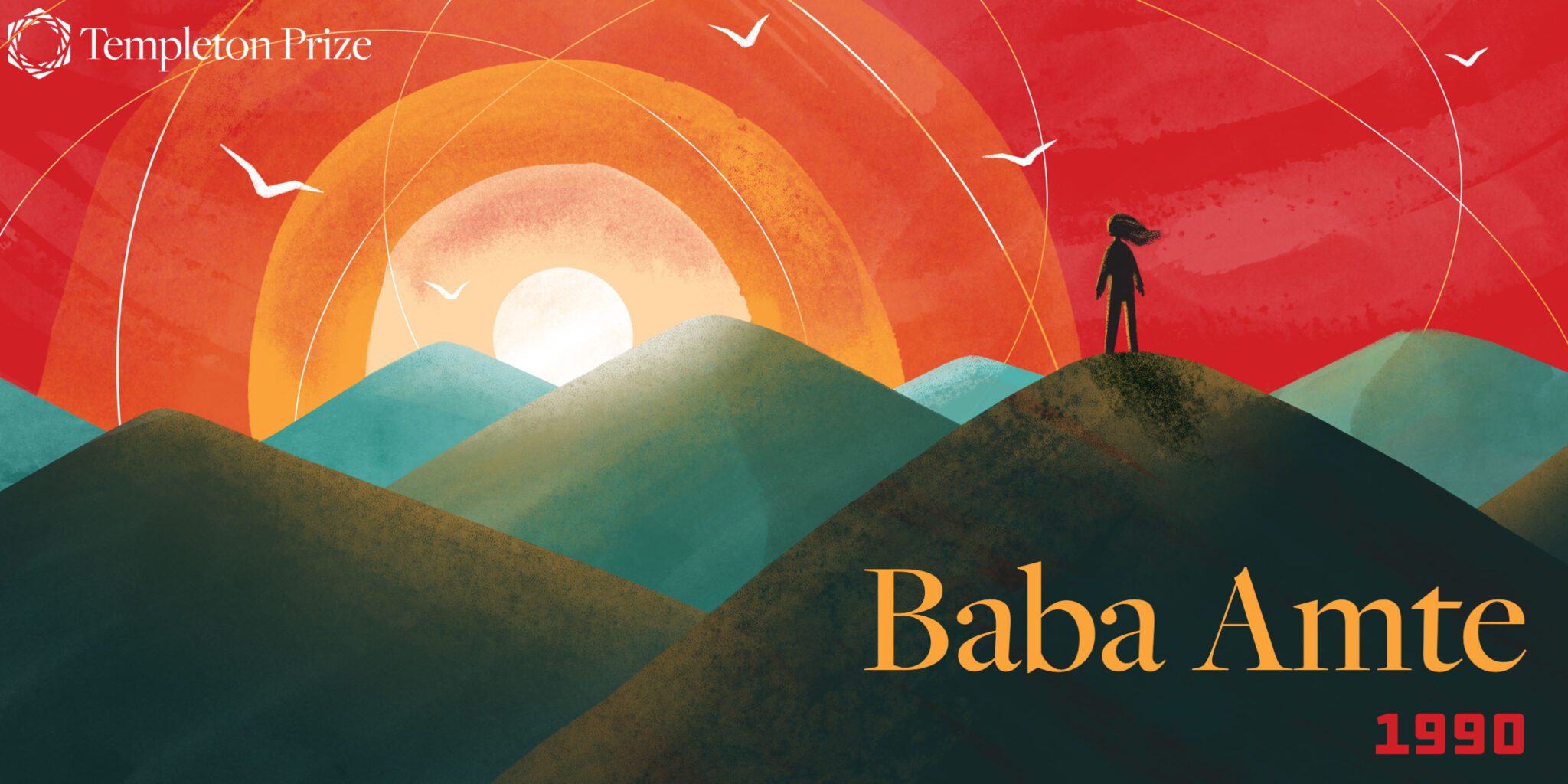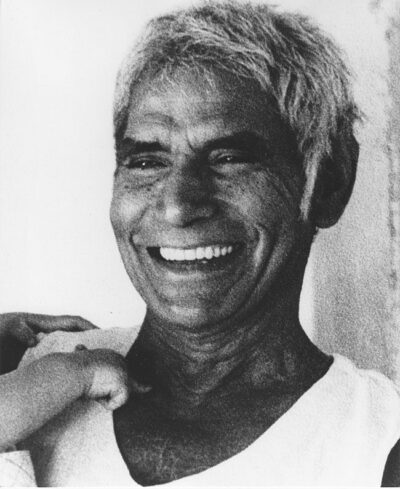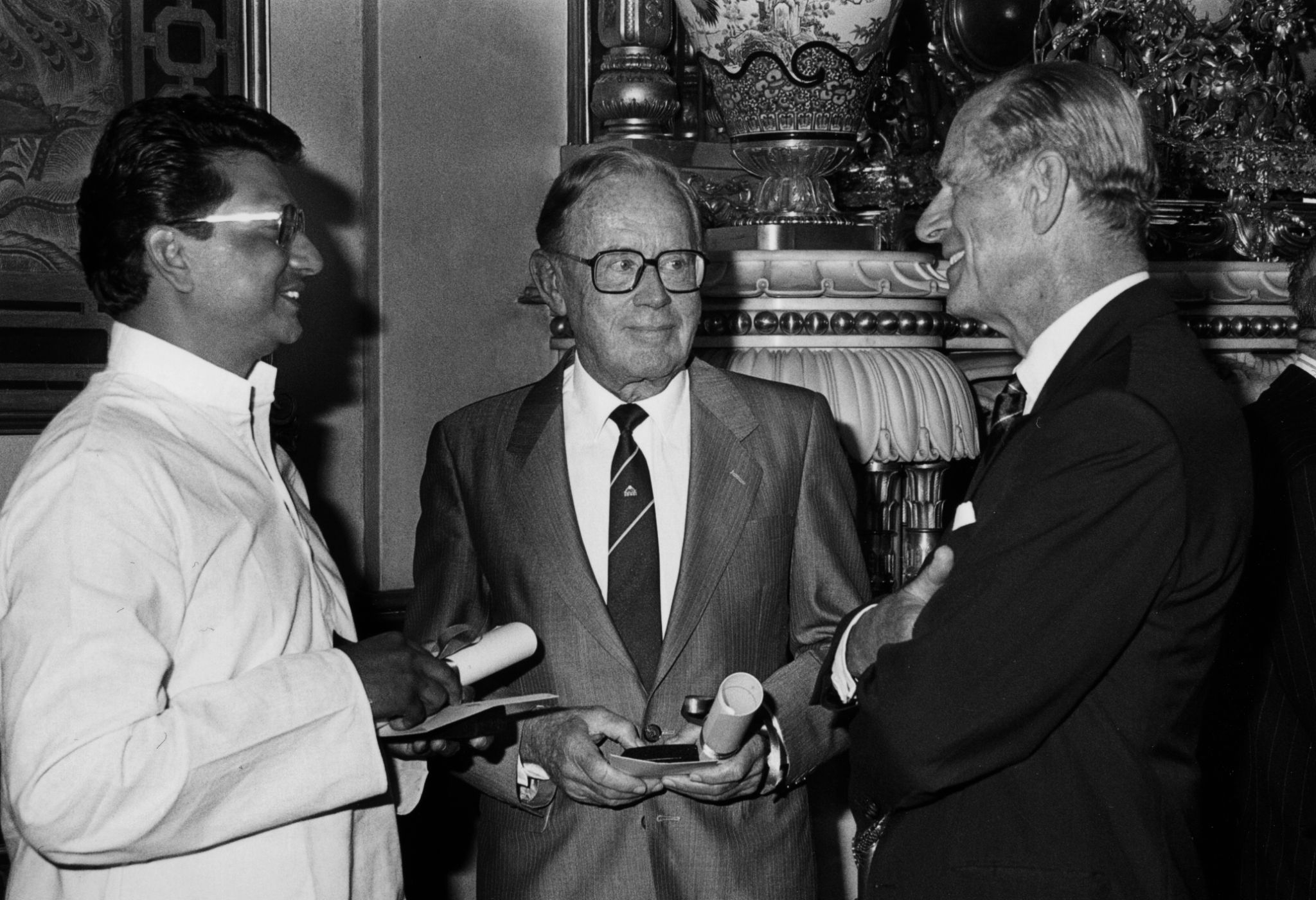In 1973, the first Templeton Prize was given to Mother Teresa. In 2023, we celebrate the 50th anniversary of this award. Over the next 52 weeks, we will highlight each of our laureates and reflect on their impact on the world. From humanitarians and saints to philosophers, theoretical physicists, and one king, the Templeton Prize has honored extraordinary people. Together, they have pushed the boundaries of our understanding of the deepest questions of the universe and humankind’s place and purpose within it, making this (we humbly think) the world’s most interesting prize.
Born on December 26, 1914 in Maharashtra, India, Baba Amte was a lawyer by profession. However, after visiting a leprosy colony in Wardha in 1949, he was moved by the plight of the leprosy patients, and he decided to dedicate his life to serving them.
Baba Amte grew up as the son of an affluent landowner. He attended a Christian college, where the seeds of the Christian value of care and service were first sown. After completing law school in 1936, he began a legal practice. Inspired by Gandhi’s work, he served as the defense lawyer for participants in the Quit India campaign against the British occupation of India. Soon after, Amte left his lucrative legal career to humbly serve those afflicted with Hansen’s Disease (leprosy) and other so-called “untouchables” of his native India.
In 1949, Amte founded an ashram – an Indian monastery – called Anandwan, with a mission to help socially disadvantaged people enhance their livelihood capabilities through self-discovery and empowering them to contribute to society. Today, Anandwan serves over 5,000 residents and has an expanded portfolio of programs in healthcare, conservation, education, and support for people with disabilities. Amte’s son, Dr. Prakash Amte, manages the hospital at Anandwan.
-

Baba Amte
Amte was a proponent of spiritual progress and antyodaya – uplifting the most oppressed. He was often seen in the gardens of Anandwan, working with his hands, planting trees, and harvesting crops. In addition to his significant work with leprosy patients, Amte is known for his advocacy for environmental justice and religious tolerance. He fiercely opposed the building of dams along at Bhopalpatnam, Ichampally, and in the Narmada Valley for the potential harmful effects on the environment and displacement of the neighboring communities. In addition to the Templeton Prize, Amte received numerous awards, including the Gandhi Peace Prize, in honor of his dedication to service and spiritual progress.
In 1990, Baba Amte was awarded the Templeton Prize for service to those afflicted with leprosy and his commitment to religious and spiritual enlightenment. Babe Amte received the Templeton Prize jointly with Professor Charles Birch at Guildhall in London. Baba Amte’s son, Dr. Vikas Amte, delivered his acceptance speech. The audience was also addressed by The Duke Of Abercorn.
-

Baba Amte receiving the Templeton Prize from HRH Prince Philip
“A life of spiritual striving is a journey, a journey of discovery, of rediscovery – a return to the Eternal Truth. A realization of the essential unity of all God’s creations, of their delicate balance and harmony.”
– Baba Amte
“I don’t want to be a great leader; I want to be a man who goes around with a little oil can and when he sees a breakdown, offers his help. To me, the man who does that is greater than any holy man in saffron-colored robes. The mechanic with the oil can: that is my ideal in life.”
– Baba Amte
“Canon Edward Finch of The Church of England who co-nominated him for the Prize has called him the ‘Mother Teresa’ of the Hindu world.”
– The Duke Of Abercorn
Still Curious?
Learn more about Baba Amte here.


